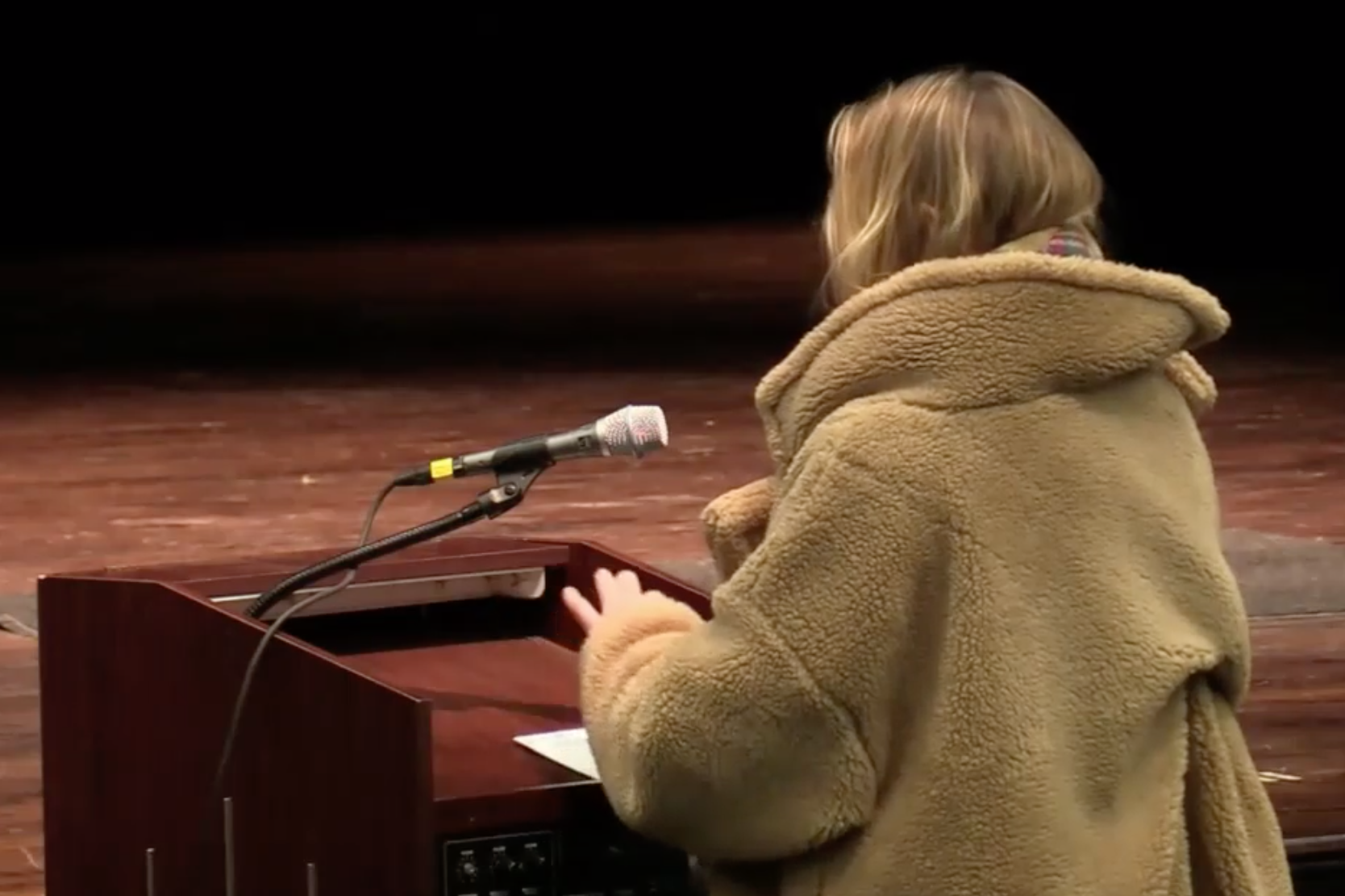Let’s dive straight into something that’s been buzzing around for a while now, and trust me, it’s not a light topic. Kook racial slur is more than just a word—it’s a loaded term with a deep history and cultural significance that can’t be ignored. Whether you’ve stumbled across it online or heard it being tossed around in conversations, understanding what it means and its implications is crucial. This isn’t just about language; it’s about respect, history, and the power of words to shape how we see each other. So, buckle up because we’re about to break it all down for ya.
Now, before we go any further, let’s clear the air. Words have weight, and the term "kook" is no exception. It’s been used as a racial slur, predominantly targeting Asian communities, and its origins date back to some pretty dark moments in history. But here’s the thing—it’s not just about the past. The impact of this word is still felt today, and that’s why it’s essential to understand its roots and how it continues to affect people. It’s not just a word; it’s a reflection of systemic issues that need addressing.
What makes this topic even more pressing is how it ties into broader discussions around racism, cultural appropriation, and the power dynamics at play in our society. We’re living in a world where words can go viral in seconds, and with that comes the responsibility to use them wisely. So, whether you’re here to learn, unlearn, or just get clued in, this article’s got you covered. Let’s dig in, shall we?
- Young Sheldon Cast The Ultimate Guide To The Nerdy Adventures Of A Child Prodigy
- Eva Rossovich The Rising Star Redefining Hollywoods Landscape
What Exactly Is a Kook Racial Slur?
Alright, so let’s break it down. A kook racial slur refers to the derogatory use of the term "kook" to belittle or insult individuals of Asian descent. Historically, this word has been weaponized to perpetuate stereotypes and reinforce racial hierarchies. But how did we get here? Well, the term "kook" itself has evolved over time, and its transformation into a racial slur is a story worth exploring.
In its original form, "kook" was slang for someone who was considered eccentric or out of touch. Over time, however, it took on a more sinister meaning, particularly in military contexts during the Vietnam War era. Soldiers began using it as a derogatory term for Vietnamese people, and from there, it seeped into broader cultural narratives about Asians in general. This shift highlights how language can be manipulated to serve harmful agendas, and it’s a pattern we need to recognize and challenge.
Origins of the Term
Let’s rewind a bit and talk about where this all started. The term "kook" likely originated in the early 20th century as a colloquialism for someone who was perceived as weird or unconventional. But it wasn’t until the Vietnam War that it gained its racial undertones. During this period, American soldiers used it as a shorthand to dehumanize their Vietnamese adversaries, reducing them to a single, derogatory label. This kind of linguistic dehumanization is a textbook example of how language can be used to justify violence and oppression.
- Hikaru Nagi Interview Unveiling The Stars Journey And Secrets
- Djo The Rising Star Shining Brighter Than Ever
Modern-Day Usage and Context
Fast forward to today, and the term "kook" still lingers in certain circles, often as a coded insult aimed at Asians. Social media platforms, in particular, have become hotbeds for its misuse, where users might throw it around without fully grasping its weight. This casual usage is part of the problem because it normalizes harmful language and desensitizes people to its impact. It’s not just about being politically correct; it’s about recognizing the harm that words can cause and choosing to do better.
The Impact of Racial Slurs on Communities
So, why does this matter? Well, the impact of racial slurs like "kook" goes far beyond just hurt feelings. It’s about the cumulative effect of being devalued and marginalized based on something as fundamental as your race. For Asian communities, terms like this contribute to a broader narrative of exclusion and otherness that can manifest in everything from workplace discrimination to hate crimes.
Imagine living in a world where your identity is constantly reduced to stereotypes and insults. That’s the reality for many Asian individuals who have to navigate these kinds of microaggressions daily. It’s not just about one word; it’s about the system that allows such language to persist and the ways it reinforces existing power structures. By understanding this, we can start to dismantle those structures and create a more inclusive society.
Psychological Effects on Victims
The psychological toll of experiencing racial slurs can be devastating. Victims often report feelings of anxiety, depression, and even PTSD as a result of repeated exposure to such language. It’s not just about hearing a word; it’s about the message that word sends—that you’re less than, that you don’t belong. This kind of internalized oppression can have long-lasting effects on mental health and self-esteem, making it crucial to address these issues head-on.
Societal Consequences of Racial Slurs
On a broader scale, the use of racial slurs like "kook" perpetuates divisions within society. It fosters an environment where prejudice and intolerance are normalized, making it harder to achieve true equality and understanding. By challenging these words and the systems that support them, we can work towards a more harmonious and respectful world. But it’s not going to happen overnight—it requires effort, education, and a willingness to confront uncomfortable truths.
Breaking Down the Stereotypes
One of the most damaging aspects of racial slurs is how they reinforce harmful stereotypes. When someone uses the term "kook," they’re not just insulting an individual; they’re perpetuating a narrative that all Asians are the same, that they’re somehow less human. These stereotypes are dangerous because they strip people of their individuality and complexity, reducing them to caricatures.
Think about it—how often have you seen Asians portrayed in media as either the perpetually foreign "other" or the model minority? These oversimplified representations do more harm than good, and they’re often rooted in the same kind of thinking that gives rise to racial slurs. By challenging these stereotypes and promoting more nuanced portrayals, we can help dismantle the structures that allow such language to thrive.
Common Asian Stereotypes in Media
- Perpetual Foreigner: The idea that Asians can never truly belong, no matter how long they’ve been in a country.
- Model Minority: The stereotype that all Asians are academically gifted and financially successful, ignoring the struggles faced by many within the community.
- Sexualization: The objectification of Asian women and the emasculation of Asian men, which further dehumanizes individuals.
How These Stereotypes Are Linked to Racial Slurs
These stereotypes don’t exist in a vacuum—they’re interconnected with the language we use to describe people. Racial slurs like "kook" reinforce these harmful narratives by reducing individuals to one-dimensional caricatures. It’s a vicious cycle where language and representation feed off each other, perpetuating a system of oppression that’s hard to break. But break it we must, and the first step is recognizing the problem.
Addressing the Issue: What Can We Do?
Now that we’ve unpacked the history and impact of the kook racial slur, let’s talk about solutions. What can we do to combat this kind of language and create a more respectful world? It’s not an easy fix, but there are steps we can take to make a difference.
Educating Ourselves and Others
Education is key. By learning about the history and impact of racial slurs, we can better understand why they’re harmful and how to avoid using them. This means not just reading articles like this one but actively seeking out diverse perspectives and voices. It also means having tough conversations with friends and family, calling out problematic language when we see it, and being open to feedback ourselves.
Advocating for Change
On a larger scale, we need to advocate for systemic change. This could mean pushing for better representation in media, supporting policies that promote equality, or simply using our platforms to amplify marginalized voices. It’s about creating a culture where everyone feels seen, heard, and valued—not just tolerated.
Conclusion: Taking Action Against Racial Slurs
As we wrap things up, let’s revisit the key points we’ve covered. The kook racial slur is more than just a word; it’s a reflection of deep-seated societal issues that need addressing. By understanding its origins, impact, and the stereotypes it perpetuates, we can work towards a more inclusive and respectful world.
So, what’s next? Well, it’s on all of us to take action. Whether that’s through education, advocacy, or simply being more mindful of the words we use, every little bit helps. And hey, if you’ve learned something new today, why not share this article with a friend? Let’s keep the conversation going and work together to create a world where everyone can thrive.
Table of Contents
- What Exactly Is a Kook Racial Slur?
- Origins of the Term
- Modern-Day Usage and Context
- The Impact of Racial Slurs on Communities
- Psychological Effects on Victims
- Societal Consequences of Racial Slurs
- Breaking Down the Stereotypes
- Common Asian Stereotypes in Media
- How These Stereotypes Are Linked to Racial Slurs
- Addressing the Issue: What Can We Do?
- Educating Ourselves and Others
- Advocating for Change



Detail Author:
- Name : Wilfredo Hammes
- Username : wunsch.alverta
- Email : susanna.adams@johnston.com
- Birthdate : 1988-02-26
- Address : 2118 Ben Trace Suite 662 West Eunafort, LA 49788
- Phone : 352-576-4855
- Company : Pollich and Sons
- Job : Database Administrator
- Bio : Nihil voluptatum sapiente ea ut aut eveniet. Qui eos aut rerum architecto sed voluptates.
Socials
tiktok:
- url : https://tiktok.com/@damaris_gutkowski
- username : damaris_gutkowski
- bio : Quo vel voluptatem dicta omnis iste tenetur.
- followers : 4770
- following : 2648
twitter:
- url : https://twitter.com/damaris389
- username : damaris389
- bio : Quia eos non dolor. Commodi ratione quidem libero impedit vel unde. Tenetur rerum quod aut itaque id distinctio.
- followers : 3482
- following : 2440
instagram:
- url : https://instagram.com/damarisgutkowski
- username : damarisgutkowski
- bio : Ducimus voluptates est velit non quis aut qui. Harum eum aut assumenda et dicta.
- followers : 2110
- following : 467
linkedin:
- url : https://linkedin.com/in/damarisgutkowski
- username : damarisgutkowski
- bio : Aut aut nam aut mollitia error dolores dolore.
- followers : 6030
- following : 1571